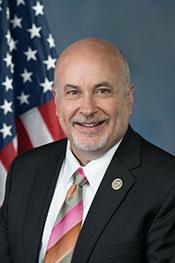0
Ending Trading and Holdings in Congressional Stocks (ETHICS) Act
1/3/2024, 5:45 PM
Summary of Bill HR 2678
Under the ETHICS Act, members of Congress would be required to place their assets in blind trusts or diversified mutual funds to prevent them from making decisions based on insider information or personal financial gain. The bill also includes provisions for increased transparency, requiring members of Congress to disclose any financial transactions within 45 days of making them.
The ETHICS Act has garnered bipartisan support, with lawmakers from both parties recognizing the importance of maintaining public trust in the integrity of Congress. Supporters of the bill argue that it is necessary to prevent conflicts of interest and ensure that lawmakers are acting in the best interests of their constituents, rather than their own financial gain. Overall, the ETHICS Act represents a significant step towards promoting accountability and transparency in Congress, and addressing concerns about potential conflicts of interest among lawmakers.
Congressional Summary of HR 2678
Ending Trading and Holdings in Congressional Stocks (ETHICS) Act
This bill generally prohibits Members of Congress (and their spouses and dependents) from purchasing or selling certain investments, such as individual stocks and related financial instruments that are not diversified investment funds, Treasury securities, or other specified holdings. Violations of this prohibition are subject to specified civil penalties.
Members must certify their compliance with the provisions of the bill, and the applicable House or Senate ethics office must make the certifications and related information (e.g., trust agreements; descriptions of assets held in trusts; and federal loans, grants, or related benefits that the Member received) available online.
Additionally, the bill restricts certain communications between trustees and beneficiaries related to investments held in qualified blind trusts. Violations of the restriction are subject to specified civil penalties.
Further, the bill imposes penalties for failing to comply with existing financial disclosure requirements and requires electronic filing of those disclosures in a searchable format.





